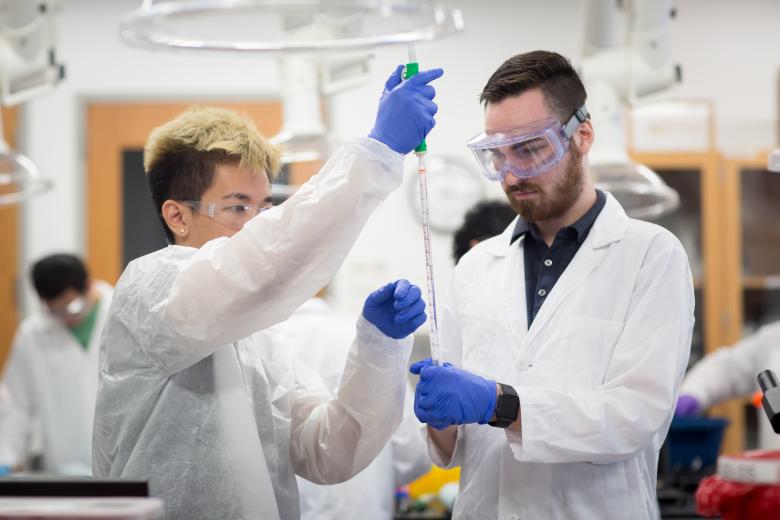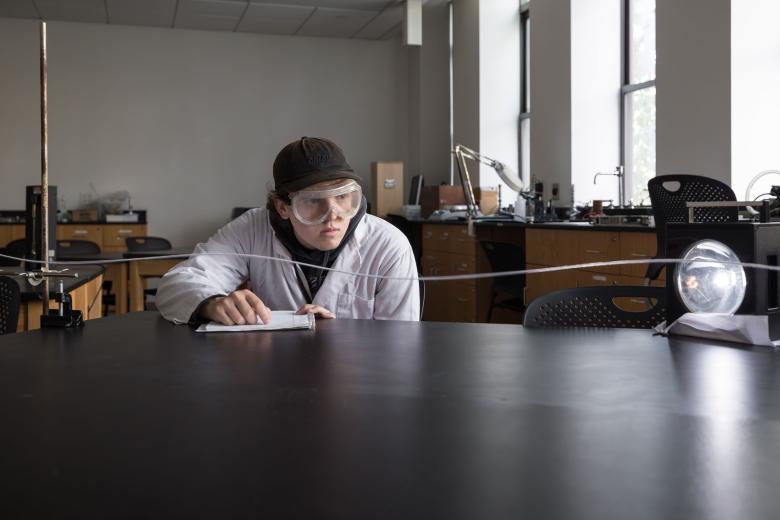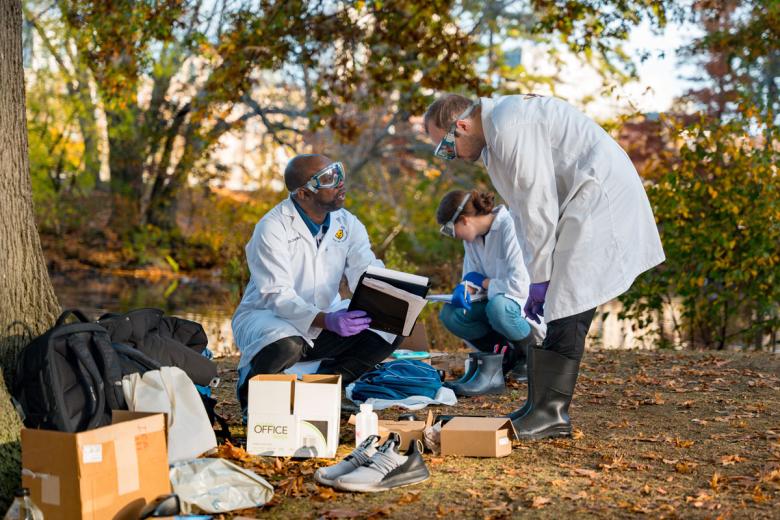Developing Global Citizens and Lifelong Learners
The School of Sciences and Humanities promotes intellectual curiosity by challenging students to ask big questions about the world around them. Students will find unique opportunities to apply their thirst for knowledge along with scientific methods to address crucial issues from climate change and improved biotechnology to urban renewal and its effect on immigration.
As the backbone for all Wentworth degrees, the School of Sciences and Humanities recognizes that students across all disciplines benefit from building skills in scientific inquiry, communication, ethics, critical thinking, and leadership. Expert faculty teach courses that provide foundational instruction in the sciences, as well as courses that teach students to employ creative approaches to problem-solving and professional development. Wentworth's School of Sciences and Humanities ensures that every student reaches their maximum potential by equipping them with the necessary tools to become lifelong learners and doers, as well as global citizens and successful professionals in their field.
Facts & Figures
of the Class of 2023 were employed or in graduate school within 6 months of graduation
Full-time Class of 2023 median starting salary
Choose from two majors and seven minors in a variety of different disciplines.
Courses like Microbiology and Thermal Physics help students build a deep foundational knowledge of important scientific concepts.
Programs of Study

Applied Sciences
Wentworth’s innovative Bachelor of Science in Applied Sciences degree is an experiential and interdisciplinary major that trains students to develop in-demand, technical skills in biology, chemistry, and physics.

Climate Resilience
The major in Climate Resilience prepares students for green jobs through interdisciplinary, hands-on education centered on real-world problems and using Boston as a laboratory.

Computer Science & Society
As technology rapidly evolves, the increased role of modern technology within our society has created a huge demand for employees with training in computer science, as well as a deep understanding of other academic disciplines and fields in the liberal arts.

Physics
In the Physics program students gain the computational skills they need to test theoretical models for anything that inspires their curiosity, from the fundamental rules for the tiniest particles imaginable to the nature of the outer boundaries of the observable universe and everything in between.
-
Undergraduate Degrees
If you are interested in Sciences & Humanities, but aren't sure which major fits you, we welcome you to join the Exploratory First Year Track.
-
Minors
Testimonials
Virtual Tour
Latest News
Fallon CEO Talks Life Sciences with Boston Real Estate
Professor Poya Named to Royal Academy of Engineering Leaders List
‘First Woman to Run for President’ Continues Faculty Colloquia Series
Employers Who Have Hired Wentworth Grads















